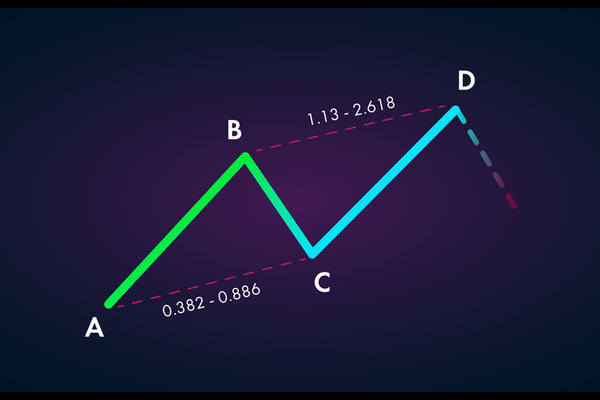The vast majority of forex brokers provide demo trading account, which have all the functions of a real account. Why
is a demo account free? Brokers want potential traders to understand and familiarize themselves with their trading platform and
practice without taking risks, so that these potential traders can become comfortable with the platform and deposit funds to open a real account. That's right, demo accounts can give us a more intuitive understanding of the forex
market and train our trading skills in a zero-risk situation. Yes, zero
risk.
It is recommended that everyone conduct a period of demo trading before formally conducting forex firm trading and
form a set of stable and profitable trading skills, trading systems, and trading
psychology through demo trading. Remember! Our suggestion
is to do at least 2 months of practice before actual trading and
ensure that you are able to practice with that "money" for at least 2 months
before losing all the virtual funds in the demo account.
Advantages of Forex Demo Trading:
1. It can enable traders, as beginners, to learn basic forex knowledge, understand changes in the prices, and formulate
strategies in a timely manner;
2. For traders who are not satisfied with the current trading platform,
simulating account trading can be an effective way to discover satisfactory
platforms.
3. Traders can have the opportunity to study the market by demo account trading when funds are not quickly digested by the forex market.
Disadvantages of Forex Demo Trading:
1. After all, the demo account is different from the
actual account. The loss of funds in the demo account will not be affected
by psychological factors, but the actual account loss of funds may not be
certain.
2. Many traders claim that the instructions on forex demo trading are too perfect and may miss out on some practical, unexpected
situations, such as trading stagnation;
3. The perfection of demo trading can also give investors a sense of
arrogance. It should be noted that excellent traders on demo trading
platforms are not necessarily excellent real traders. When risks arise,
demo traders find it difficult to avoid them.
As a beginner to the forex market, others often encourage you to
conduct a period of practice before starting real trading. By
simulating trading, you can learn basic trading skills, develop your own trading plans,
implement appropriate risk management, and experience trading psychology without
using your hard-earned money to take risks. Once you have sustained
profitability and established sufficient trading confidence, you can officially
start opening a real trading account. Because you can already continue to make
profits in simulated trading, making money in real trading is no longer that
difficult, is it? If you think that way, then you are wrong! Great mistake! When
most beginners switch from simulated trading to real trading, they usually think
that their beautiful simulated trading results can be replicated in real
trading. Therefore, many beginners will feel disheartened when they find that
the real situation is not as good as they think! Here are some few reasons why the
situation has become so bad:
Firstly, true gold and silver mean true feelings.
As a forex trader, we try our best to become as calm and rational
as Kristen Stewart when trading. However, it is impossible to completely
eliminate emotional factors, as emotional fluctuations inevitably increase when
your money is on the rise. To further illustrate the issue, compare how you feel
different when you first simulate trading and when you first experience real
trading. Is your heart racing? Is there any tasteless food? Even shaking hands?
If that's the case, in real trading, either you fall in love with it crazily or
you become particularly nervous.
Secondly, there is no real financial risk associated with simulated
trading.
Even if you take simulated trading as seriously as real trading, there is no
actual financial risk associated with simulated trading. Even if you lose some
money, you will feel harmless because you know in your heart that you can always
obtain virtual currency to refund your simulated account. If you make mistakes
repeatedly in simulated trading, you will still feel good because you know you
can easily start over again, and it won't put too much psychological pressure on
you. On the contrary, in real trading, if you encounter a sharp drop, your
trading confidence will be greatly affected, and your future trading decisions
will also be disrupted, making you less confident.
Thirdly, the temptation to make mistakes in real transactions is greater.
Because you are currently facing real financial risks, you will make more
emotional investments in the trading results. Therefore, when this temptation
acts on your bad trading habits, it becomes stronger and more dangerous. Just as
you think you will eventually overcome those bad habits, you may find that you
have made common trading mistakes, such as moving your stop-loss position,
premature closing of profit positions, and even retaliatory trading.
Comparison between simulated and real transactions
| Comparison/Distinction |
Demo Trading |
Live Trading |
| Capital Risk |
No actual capital risk |
Involves real capital risk, impacts emotional investment |
| Trading Psychology |
Relatively relaxed, less psychological pressure |
More tense, significant emotional fluctuations |
| Temptation of Errors |
Rarely affects confidence |
Stronger temptation for errors, impacts trading decisions |
| Execution Precision |
Commands are relatively flawless |
Influenced by emotions, potential for developing bad habits |
| Trading Platform |
Familiarization with platform and market |
Real platform environment, distinct from simulation |
| Learning Value |
Learning techniques and strategies |
Verifying feasibility of real trading |
| Trading Outcomes |
Results with zero risk |
Confronting fluctuations in actual outcomes |
| Trading Confidence |
Developing initial trading confidence |
Prone to setbacks |
| Trading Decisions |
Relatively cool analysis |
Influenced by emotions and risk |
| Market Research |
Opportunity for market research |
Difficult to conduct in-depth research due to risk |
| Learning Tool |
Vital learning and practice tool |
Environment for validating and improving skills |
Forex demo trading is a method of conducting forex trading through a virtual trading platform that provides a real market
environment and conditions, allowing investors to learn and practice trading
skills, familiarize themselves with the trading platform and market conditions,
and improve and verify their trading strategies. Demo trading is an important learning and practical tool for both novice investors
and experienced traders.
Disclaimer: This material is for general information purposes only and is not intended as (and should not be considered to be) financial, investment or other advice on which reliance should be placed. No opinion given in the material constitutes a recommendation by EBC or the author that any particular investment, security, transaction or investment strategy is suitable for any specific person.






